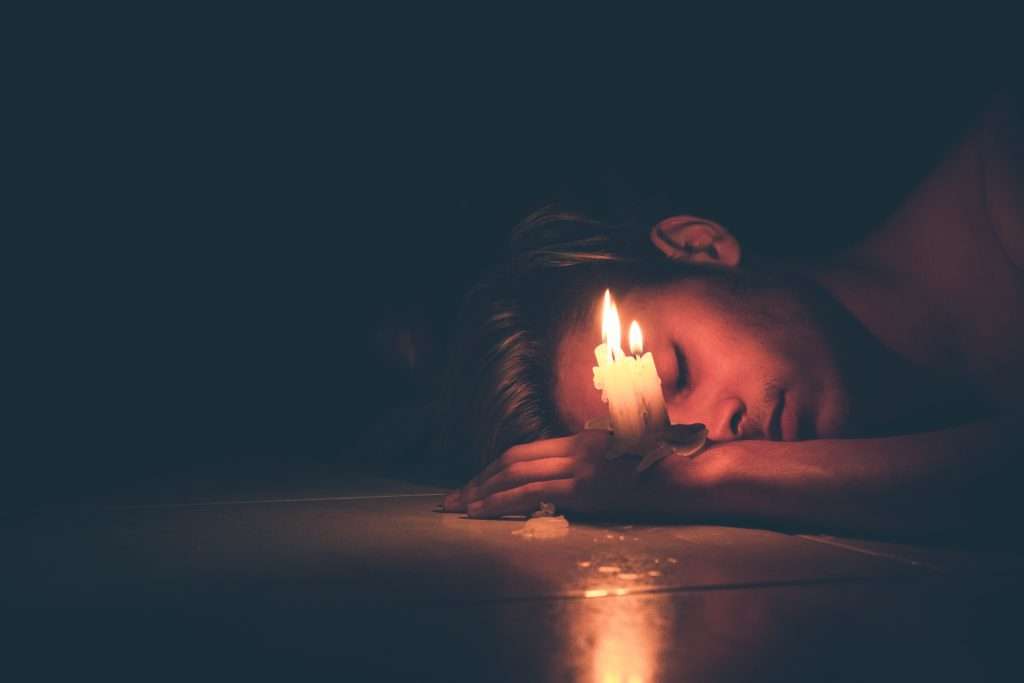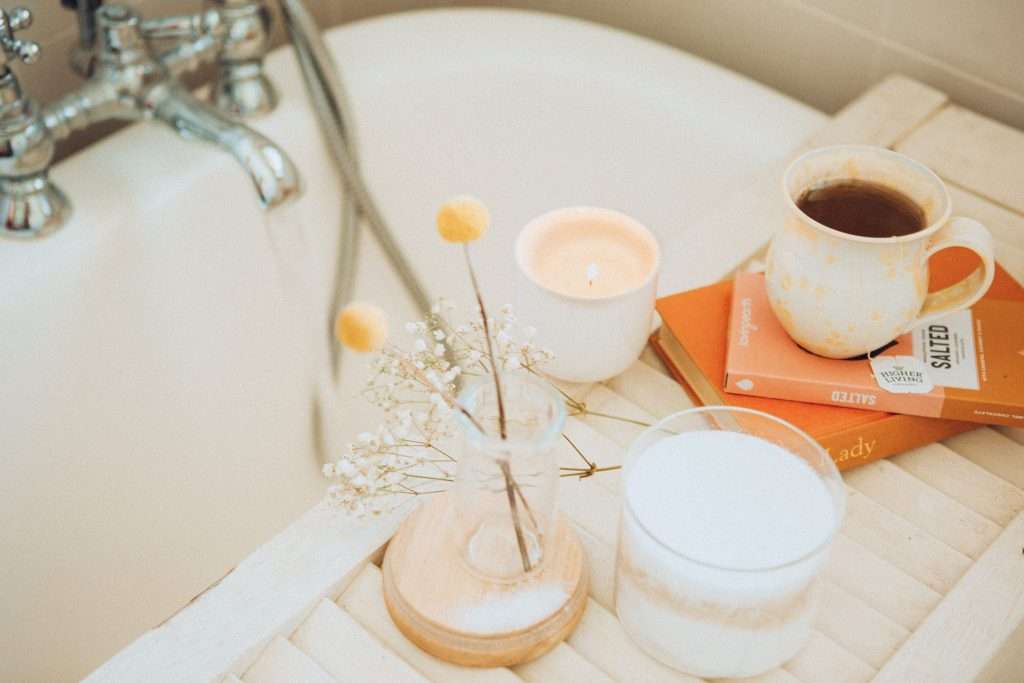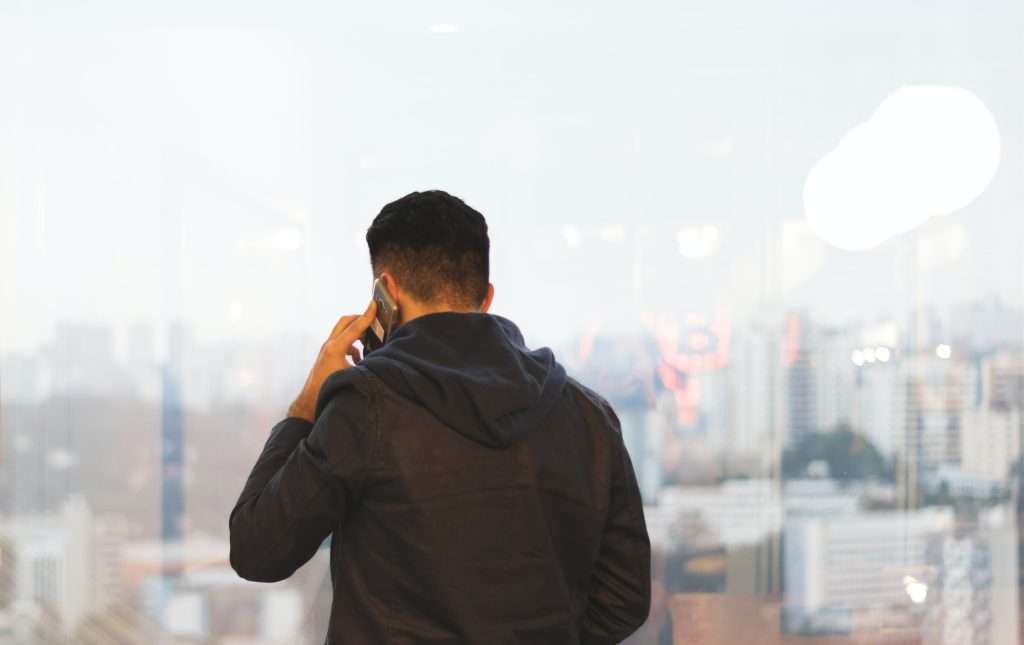SAD stands for Seasonal Affective Disorder. It is a type of depression that is tied to the darker, colder seasons of the year when we don’t get enough sun.

It is already November, and although it can be difficult to accept, winter will soon be here. It’s fairly dark when you get up, and it is certainly dark when you go to bed. Most days are cloudy, and there is not yet any snow to brighten our surroundings.
Many struggle with the darker months of the year. The days are shorter, we get less exposure to the sun and in northern climates, we often end up deficient of vitamin D. If that’s you, it is a good idea to start taking vitamin D supplements during the late summer months. You want to give your body a chance to transition smoothly from season to season without a dip in vitamin D. But it is not too late to start now.
What does SAD stand for?
SAD stands for Seasonal Affective Disorder, and it is a type of seasonal depression. That means that it can and often is as debilitating as regular depression, but it is triggered by the change in the seasons. More specifically, the darker and colder months of the year. For some, it starts around the end of August. For others, it comes with the first frost. And for a few people, it may be triggered as early as the weeks following the summer equinox. That is the longest day of the year, and the days will only get shorter from that point until the spring equinox. The symptoms of SAD may continue well into spring or even early summer. Especially if you live in a place that has four separate seasons.
Some require medicine – antidepressants – during this time. For others, natural methods work better. CBD is one alternative.
Common symptoms of SAD
While most humans enter a somewhat dormant phase during the colder months, those with SAD take it one step further. Those who experience SAD often lose interest in the things they’re usually excited about. They will experience a lack of energy and struggle with their normal daily activities. They will be more susceptible to stress and struggle more in relationships and with social interactions in general. While feeling lonely, they may still have a hard time interacting with others. Keeping up with basic matters such as eating, bathing, sleeping and loving themselves will get more difficult as the seasons progress. Many will struggle to get out of bed in the morning.
Fear of the dark
Before electricity, a fear of the dark was common. People believed the dead roamed free once the sun set, and avoided leaving the house or doing much of anything while it was still dark outside. As soon as the sun rose, however, their day began. While we do have electricity in most parts of the world, a fear of the dark is still common. Part of it is a general fear of the unknown, and the other part is a fear of how the darkness makes them feel.
It is common to feel anxiety over the colder, darker months of the year. Especially if a person feels that they don’t have their life in order. If they’re unsure about their finances, their health or their housing situation, the prospect of darker days and colder weather can feel very unsettling. It is like a deadline they can’t escape. Autumn and winter especially are often seen as a time of rest: a hibernation of sorts for humans and many other animals. Nothing blooms all year. Much like the plants in our garden, we will experience dormant periods. Times when we feel a need to sit still, rest more and focus more inwardly.
Humans are like plants with anxiety. We mostly consist of water, and we need nutrition, water and sunlight in equal amounts. Take away one of those, and we’re bound to not do as well. Our health is at greater risk and we have to take greater care to stay healthy.
Light therapy
One way to deal with the darkness – both the one within and the one caused by the lack of sun – is to engage in light therapy.
Light therapy requires about thirty minutes every day to have the desired effect. You are not meant to look at the light directly but sit close by. And it isn’t just any light that will do. Light therapy involves a particular UV-free light. Some lights are warmer than others, and it all comes down to your preference.
While it is possible to see a professional for light therapy, most acquire a portable light therapy device that simply needs to be plugged into an outlet to function. They often come with a little stand. Some also have a remote so that you may adjust the light to your liking.
Natural intake of vitamin D
We need about 600 IU of vitamin D every day. While taking supplements is the easiest way to make sure we get enough vitamin D into our system, there are ways to help increase our vitamin D intake naturally.
Spend as much time as you can in the sun – safely, of course. Protecting your eyes and skin is important all year round. It is recommended to use skin care products with SPF and wear Polaroid sunglasses when it is very bright out, and special snow sunglasses during activities in the snow.
Eat wild and safe mushrooms. Certain wild mushrooms provide a good amount of vitamin D2, due to their exposure to sunlight, what with them growing outside. That is why commercially grown mushrooms – those grown indoors – contain very little vitamin D2. They have grown through the use of artificial light, and thus, they contain less vitamin D2 than the wild mushrooms that have formed with the help of sunlight under the open sky.
Drink plant-based milk. Plant-based milks such as almond milk, soy milk and oat milk are rich in vitamins and other nutrients. One glass of soy milk covers about 15% of your daily vitamin D intake. In comparison, a glass of almond milk covers about 25% and a glass of oat milk covers about 20%.

Self-care is your best friend
Mind your self-talk
No matter what kind of depression you have, you need to be kind to yourself to be able to overcome it. That means you need to be mindful of your thoughts and how you speak to yourself. In today’s society, it is common to bully ourselves and engage in self-talk that is detrimental to our mental health. We need to be kind and love ourselves.
Eat well
When you are feeling sad, it is even more important to look after yourself. Make sure you get a good night’s rest. Prep your meals to make things easier for your future self. Eat with others. You can eat small amounts throughout the day if you struggle with full meals.
Keep going
SAD can be debilitating. Use reminders to help you keep up with things such as hygiene, cleaning your home, doing laundry and the like. When you fall down the rabbit hole, it is easy to lose your way. When we get lost in a dark place, we become unable to see and notice our surroundings. Reminders help.
Be creative
Listen to music and dance as often as you can. Music heals, and dance? Dance is a healing movement that will allow your energy to flow. It is good for both your physical health and your mental health.
Don’t be afraid of your emotions. Instead, remember to express them. Journal daily. Draw your emotions. Create art. Paint.
Read and allow yourself to get lost in other worlds. It is a good way to get to experience emotions for a few hours. This is especially important when you fell numb or when you are dissociating from reality.
Social interactions
Schedule time with others. Alone time is important, but so is time with others. And by others, I mean people who love and respect you. People that you feel safe, happy and comfortable around. It is important to have a balance of social time and time alone. Even more so when you suffer from SAD and depression. It is too easy to get lost in your own head otherwise. And when you’re depressed, your own mind is not a good place to be lost inside.
Physical intimacy
Cuddle. It doesn’t matter if it is with your pets, your loved ones or with a bed full of stuffed animals. Hugging is important and healing. And when you’re stuck in a dark place, a hug could be exactly what you need to open your eyes to the light once more.
Inform your loved ones about your SAD so that they can be prepared. Knowing they understand and have your back will surely help see you through this trying time.

Note!
If you or someone you know is struggling with SAD, depression or anxiety, please don’t hesitate to ask for help. No one deserves to struggle with mental health issues. Talk to someone. Ask for help.
Suicide hotlines:
Sweden – +46 90101
Norway – +47 81533300
Denmark – +45 70 201 201
Ireland – 116 123
UK – 0800 689 5652
US – 988
Stay safe!
Discover more from Desoullife
Subscribe to get the latest posts sent to your email.
